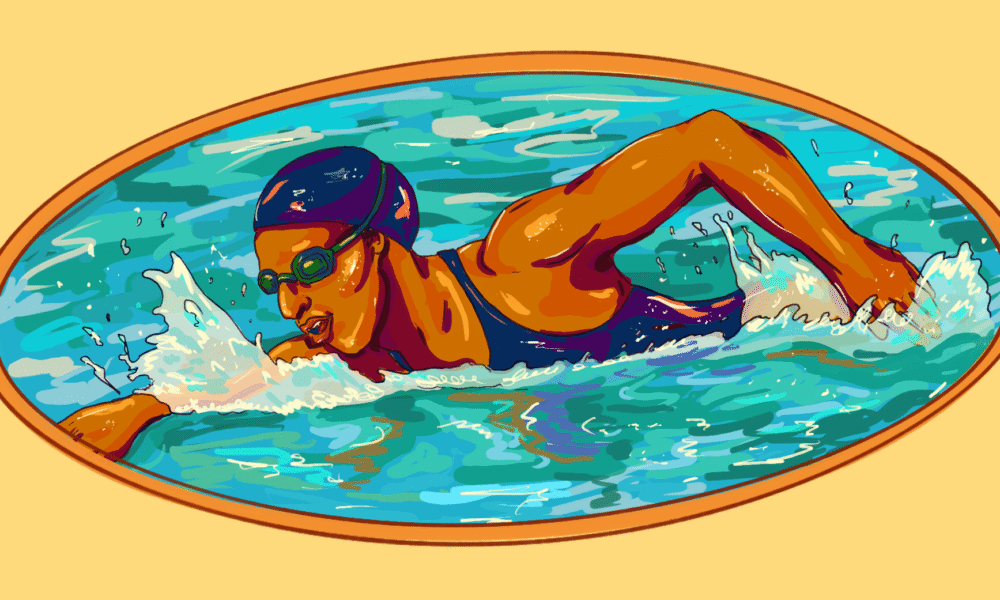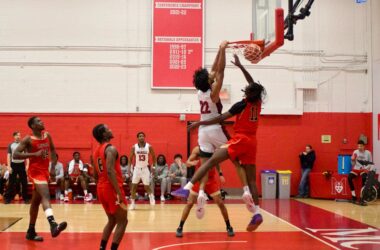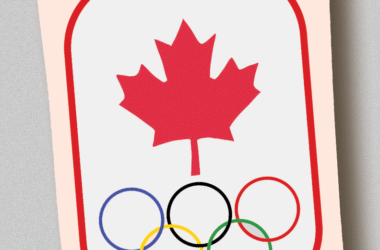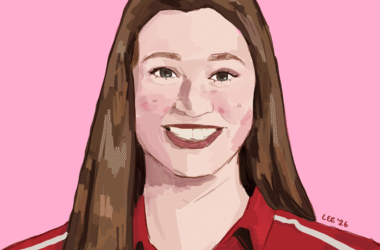McGill Varsity Swim hosted the Réseau du sport étudiant du Québec (RSEQ) University Cup 2 Meet on Oct. 26. Both the Redbirds and Martlets finished first on the leaderboard, earning an impressive total of 1,067 points. The event was the second of four RSEQ cup meets that Quebec universities compete in before the U SPORTS National Championships.
McGill has solidified itself as a powerhouse in university swimming under Head Coach Peter Carpenter, finishing in the top three nationally in 2025 and winning five consecutive RSEQ championships in the past five years. Their goal this season is to win their sixth RSEQ championship in a row, and place on the Nationals podium in both the men’s and women’s divisions.
In an interview with The Tribune, Carpenter described how the results and expectations for McGill Swim have changed drastically over the years.
“In my first year, we finished 15th and 13th at Nationals out of 25 teams or so,” Carpenter said. “Now, for the past five years, we’ve had a team in the top three. Last year it was the women, the year before, the men.”
The team’s Cup 2 win reflects their growth and consistency, placing first in 13 of 20 events at the Cup and showcasing the depth of talent that defines McGill’s program.
Rebecca McGrath, U1 Science student and a first-year swimmer at McGill, claimed gold medals in all four events she competed in and was named women’s Swimmer of the Meet. McGrath sat down with The Tribune to explain the team’s plan going into this meet.
“Our biggest goal was to win all the relays,” McGrath said. “We weren’t able to do that in [our] first meet, but this time we did, which was more rewarding because [it was] a team effort.”
The team’s focus on the relays reflects their approach of valuing collective results over individual achievements. McGill Swim participates in annual retreats and intensive training camps—this year in Barbados—allowing them to set collective goals even in an individually-oriented sport.
“As an individual sport, everyone tends to think in terms of what they want to achieve,” Carpenter highlighted. “But at the retreat, [swimmers] bring those personal goals to the table and ask, ‘How does this goal contribute to the team?’ The team goals are really an amalgamation of all the individual ones.”
That philosophy extends to McGill Swim’s training, where practices emphasize quality over quantity through event-specific workouts, instead of swimmers simply logging long hours in the pool.
“Volume is one thing, intensity is another,” Carpenter said. “Swimming is a sport that demands time in the water. You can’t replicate training unless you’re actually in the pool.”
The athletes themselves, led by captains Alejandro Giggey and Iris Tinmouth, also take a proactive role in their competition preparation. Despite missing Cup 2 due to injury, Giggey strives to create an optimistic atmosphere by leading team cheers and stretches. In an interview with The Tribune, he described how he has balanced academics with athletics over the years, highlighting how the team puts its members first.
“Sometimes you will have to miss a practice for a midterm,” Giggy explained. “[Coach Carpenter] is very understanding of that. We are student-athletes, not athlete-students.”
McGill Swim also makes a point of supporting one another academically, often helping each other with schoolwork when needed. That close-knit community is reflective of the strong bonds the swimmers have built over the years.
In an interview with The Tribune, assistant coach Nikki van Noord, who has been part of the program for nine years—an athlete for six of those years—reflected on her journey from swimmer to coach, and the relationships she formed while on the team.
“It’s really because of [Coach Carpenter] that I decided to take the coaching route,” van Noord said. “It inspires me every day that he’s as passionate as he is.”
“My favourite part is developing long-lasting relationships with the athletes,” Carpenter shared. “Nikki asked me to officiate her wedding this year. She’s marrying another former swimmer on the team.”
The relationships and mentorship built within the program leave a lasting impact on both athletes and coaches.
“The team builds more than just athletes, it builds people,” van Noord emphasized. “I wouldn’t be doing a ninth season at McGill if I didn’t love the team.”









